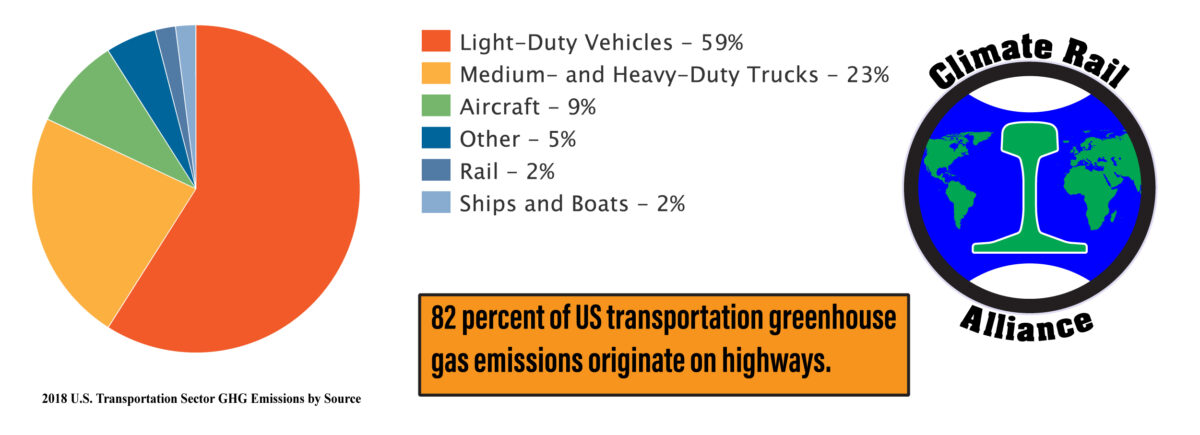The companion Senate bill is SB 5689. The bill, at the outset, was identical to the House Bill. Please send comments to members of the Senate Transportation Committee.
Also, see another comment letter here.
_________________________________
To: House Transportation Committee, regarding the Governor’s requested supplemental transportation budget bill, HB 1786:
In support of the Governor’s climate goals and the climate goals of other Washington state agencies, and environment and climate advocacy groups to urgently reduce vehicle miles traveled and reduce greenhouse gas emissions from the transportation sector, I offer the following comments to the House Transportation Committee regarding HB 1786, the Governor’s requested Supplemental Transportation Budget:
Section 223 Rail – Program Y – Operating (1) p 57 Line 10: Delete “reduce costs,”.
It is imperative to invest in infrastructure and service improvements that induce demand for rail travel. The policy of reducing costs and operating on a bare minimum must end. We need substantial state and federal investments in the Amtrak Cascades corridor. Investments in rail infrastructure are known to provide benefits to both freight and passenger transportation.
Line 16: Delete “, reduced level of service,”.
As with the above, it is imperative that the policy of reduced service for rail travel must end. We need to reduce vehicle miles traveled and we need to reduce greenhouse gasses – quickly, and rail transportation is the best way to do both. Rail levels of service need to be vastly increased and service must be convenient and attractive to maximize ridership.
Section 223 (2) page 57 line 35:
Please add that a final report on the Service Development Plan is due from WSDOT January 31, 2023.
This will give the legislature time to budget funds for implementing projects designated in the Amtrak Cascades Service Development Plan which is the subject of paragraph (2) We do not have time to delay.
Section 223 (3) page 57 lines 36-39 and page 58 lines 1-18:
Delete paragraph regarding rail banking.
Rail banking is already in existence as an option. It is extremely difficult to return trails back to rail usage. Instead, consider allocating this $150,000 to study innovative uses for under-utilized rail infrastructure that involve moving people or goods by rail.
Section 223 (4) page 58, all, and page 59 lines 1-21:
Delete paragraphs regarding $4 Million in funding for the ultra high speed ground transportation corridor per “Vision 2050”.
This enterprise seeking to connect the “mega cities” is an inappropriate use of land, public money, and especially time. This project cannot be completed until approximately 30 years, assuming no delays, and that is too late to make a difference for the climate emergency. We need a “Vision 2030”, and we can achieve that by implementing the blueprint that we paid many millions of taxpayer dollars to develop – the Long Range Plan (LRP) for Amtrak Cascades (2006) – of which only 10% has been implemented. It must be the basis for WSDOT’s new Service Development Plan, and it just needs to be updated and projects completed within this decade. When integrated well with local transit, it will provide the backbone of an effective railroad that benefits both freight and passenger rail service. The LRP is the practical,
economical choice for achieving “high speed rail” by FRA definition – rail that makes sense in our region, and it can be completed within our short climate timeline. The LRP was the rail transportation model mandated by our legislature as enacted in RCW 47.79.020, which also directed further phases that would achieve speeds over 150 mph in certain dedicated segments after completion of the LRP. The LRP was to be completed in 2018. We’re way behind. We cannot skip the step of improving our existing network.
A much more important use of $4 Million would be to initiate a Service Development Plan for East/West rail service that is similar to the Amtrak Cascades Long Range Plan.
Thank you for your attention to our climate emergency,
Lael White
